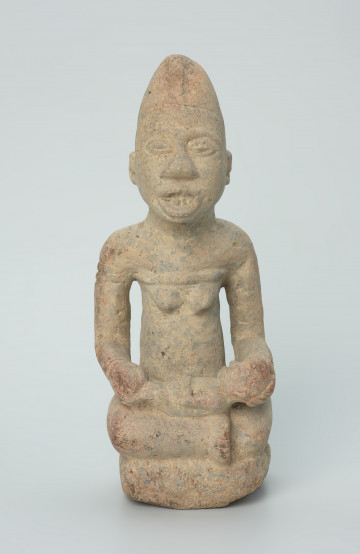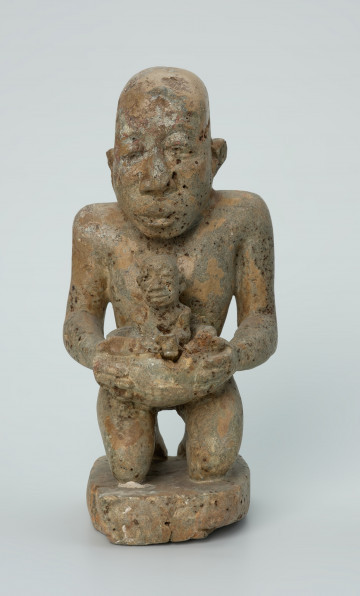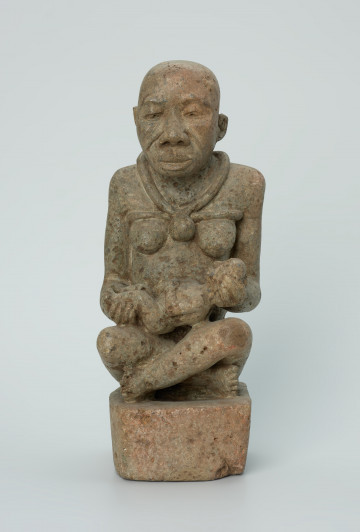
Ancestor worship figure
około 1901 — 2000
National Museum in Szczecin
Part of the collection: Mintadi figurines
The ntadi (plural mintadi) sculpture shows a woman holding children. The Bakongo believe that this representation is associated with fertility. She personifies abundance and is supposed to protect the new generation coming into the world. Mintadi are symbolic portraits. Most often, they depict deceased chiefs, village heads. The artists tried to capture the personality of the figure and convey its majesty, power and wisdom. On the other hand, individual features were given by details such as caps, walking sticks, hairstyles, scarifications, necklaces and bracelets, which were also supposed to indicate social position. The figure in question probably represents a woman from the social elite. She has numerous ornaments, which are signs of belonging to the aristocracy. Her arms and legs are decorated with bracelets marked on her shoulders and at the level of her ankles; a large necklace resembles a necklace on her neck. Women from the high social strata wore heavy jewellery to signify their wealth and dignity. Ankle bracelets were called dienge dia kulu. These were massive ornaments that weighed up to three kilograms, as were dienge dia nsingu necklaces made of richly decorated copper. It was calculated that a wealthy woman could wear about 10 kilograms of jewellery. The mark of an elite woman is also a hairstyle resembling a pointed cap and filed teeth. Among the Bakongo, a woman with filed teeth is considered the ideal of beauty. Large teeth are considered unattractive and are compared to the teeth of a goat. On the other hand, sharply filed teeth are called ‘laughing teeth’. Mintadi were placed on household altars and cemeteries - the graves of village chiefs, family and their mothers and wives.
Katarzyna Findlik-Gawron
Author / creator
Dimensions
cały obiekt: height: 33,5 cm, width: 13,7 cm
Object type
figure
Creation time / dating
Creation / finding place
Identification number
Location / status

około 1901 — 2000
National Museum in Szczecin

około 1901 — 2000
National Museum in Szczecin

około 1901 — 1950
National Museum in Szczecin
DISCOVER this TOPIC
Museum of King Jan III's Palace at Wilanów
DISCOVER this PATH
Educational path